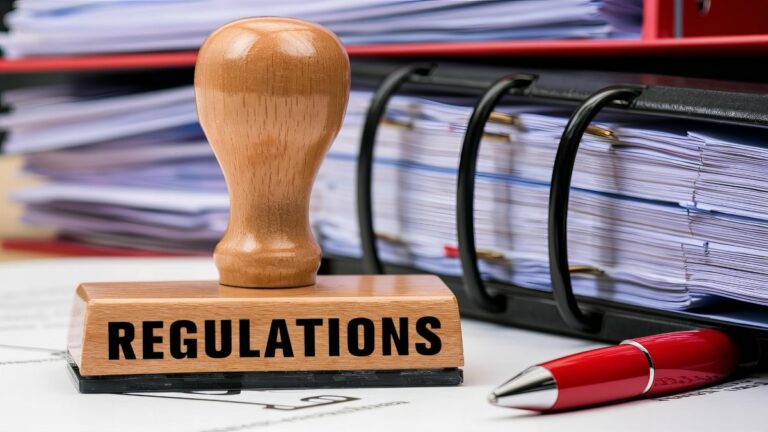
States are polarized on lottery couriers, with some tolerating them, others formally regulating them, and some banning them outright. One legal expert believes that New York and New Jersey—home to two of the largest lotteries in the US—provide an example to other states of why regulation is the way to go.
Couriers such as Jackpot.com, Jackpocket, theLotter and Lotto.com offer third-party online sales of retail lottery tickets. While some states frown on that practice, both New York and New Jersey have embraced the industry and clarified the legal gray area it operates in by providing regulations for couriers to follow.
According to Stephen Piepgrass, Partner at Troutman Pepper Locke law firm, a regulated partnership with couriers is a great alternative to establishing a state-run online lottery. He told Bonus:
I think it’s a great alternative for states that would like to get the benefit of having full-fledged, iLottery, but aren’t able to get the votes for whatever reason to get a full regulatory structure passed.
I think the lottery courier industry actually offers an opportunity for, really a shortcut to getting there and getting the benefit of all those dollars flowing into the state through it. Of course, we’ve only seen it in two states, and they’re neighbors, and they’re in the Northeast. So, whether that spreads throughout the country quickly or whether we go the other direction, remains to be seen.
NJ, NY hold couriers to regulatory oversight
New York and New Jersey are two states that feel couriers bring a benefit to their lottery system and chose to establish regulation policies to allow them to operate. New Jersey’s attempts to legalize an actual online lottery have failed, while New York does direct online sales of draw tickets by subscription only.
The couriers apply to operate in the state, and only authorized organizations will be allowed to sell the state’s lottery tickets.
These couriers have to demonstrate an ability to prevent underage purchases and use geolocation technology to ensure customers are in-state. They’re also prohibited from selling lottery tickets at a higher price than what retailers do. They make their money other ways, such as by charging transaction fees on deposits and withdrawals.
Currently, Jackpocket, Lotto.com, Jackpot.com and theLotter are registered to operate in New Jersey and New York. According to Statista, New York is the largest US lottery by sales. In 2024, it had $10.55 billion in sales, including what couriers brought to the table. New Jersey ranked 14th with $3.63 billion.
The couriers have often expressed a desire to work with states in a regulation fashion, but other couriers have looked to expose the legal gray area and sell tickets to customers outside of state boundaries and overseas.
It’s those rogue couriers that have put the entire industry in a negative spotlight and created turmoil with lawmakers around the country, as Piepgrass notes.
Across the country this area is really in flux, and there are only a couple of states, New Jersey and New York, that have actually implemented real regulatory schemes around setting up these businesses. In most states, operators are in a legal gray area, which in some ways, comes with the territory when you’re in the gaming space at all, but it’s not a very comfortable position to be in if you’re if you’re a lottery courier.
Couriers dealing with bans in other states
Couriers have been a hot topic around the US lately, as multiple states are pursuing a ban on the business model.
The most notable has been in Texas, where the Texas Lottery Commission (TLC) is facing fraud charges over an April 2023 Lotto Texas drawing that saw a single entity purchase nearly $26 million in tickets through couriers to win a $95 million jackpot.
In February, another courier customer won an $83.5 million Lotto Texas jackpot by purchasing 10 tickets through a courier. Though online lottery sales are illegal in Texas, couriers were able to operate through a lack of action by the TLC and lawmakers to stop them.
Following that latest win, multiple Texas government officials called for investigations into the TLC and couriers, forcing the commission to establish a ban that officially went into place on April 29. On top of that, multiple members of TLC leadership resigned from their positions.
To Piepgrass, the negative press and influence from the public is what drove the drastic change in policy toward couriers.
Bad facts make bad law, something like that, right? I think this is a case here where you had a couple of huge wins in the Texas Lottery, where couriers were involved, and when you’ve got headlines like that, you often see rapid policy changes following thereafter. Government officials watch the news and they see what’s happening, and they, more than anyone, have a finger on the pulse of public opinion on an issue. I think that that those wins in which couriers were involved really did create pressure to change an interpretation, and that’s what we saw.
Aside from Texas, Indiana has passed legislation that bars couriers from operating in the state. Connecticut and South Carolina also are working on legislation that prevent couriers from doing business in their respective states.
Couriers an option to slowing iLottery expansion
Couriers operate freely in other states like Colorado, Ohio, Nebraska and others. Some lawmakers wouldn’t be comfortable with that in their state, but a regulatory relationship could be the middle ground that satisfies both sides.
Though state-run online lotteries are more common than online casinos, many states still struggle to pass legislation on iLottery. Even if a bill passes, the regulatory process for creating an online lottery can be cumbersome. Couriers provide an appealing way to eliminate most of that bureaucracy.
That’s may be what New York and New Jersey have found appealing, especially the latter. The New Jersey lottery has sought to authorize online sales, only to be blocked by legislators amid pushback from business owners.
Should the states be able to establish the guardrails for couriers, most operators seem open to complying in order to help keep the business growing.
Piepgrass notes that most of the couriers are on board with being regulated and showing they can operate in a positive way.
We see this in a lot of heavily regulated industries, where you have those who are actually interested and want to be regulated, and then others who are happy in the in the gray and see that as a way of making a great deal of money in a very short period of time. I think in the long run, those who are interested in being regulated have an interest in actually finding common ground with the regulators.
Putting in guidelines, real clear guard rails, and pushing out those who’d prefer to stay in the gray. I think that’s what we saw in New York and New Jersey. And my sense is that those who are interested in continuing to operate in states like Texas and others would rather be operating in a heavily regulated environment but still able to operate then rather than being in this gray zone where they risk criminal prosecution and other issues.
Illinois considering courier addition
Illinois, a state that already has iLottery, has legislation being considered that would allow the state lottery to work with couriers in a regulated manner.
Couriers would have geolocation, age verification, and data sharing requirements to operate and strict punishments if they violated the established policies.
Illinois would be the first to state to have couriers and an official online lottery if the bill passes.
Despite all the legal drama in Texas, the state also has a bill in legislation that would establish regulatory framework between couriers and the TLC. Florida is also considering similar legislation with a Senate Bill that was introduced in March.
Piepgrass believes that couriers being able to operate successfully in a regulated market will be the best way for the industry to continue to grow in the US.
“I do think things like explaining to regulators the geo fencing and the guidelines and guardrails you have in place when It comes to the age of ticket purchasers, those things are always helpful, optically, when you’re dealing with regulators. It shows, actually, no, this really isn’t the Wild West when it comes to at how certain couriers operate and really work with the regulators to develop regulation that implements things that are possible for the industry to do. That helps the regulators to get comfortable with this industry and to feel like the chances of consumer harm are minimized. I think that’s different in some ways from the issue that we’ve seen in Texas, which really is a serious concern about gaming the system.”





